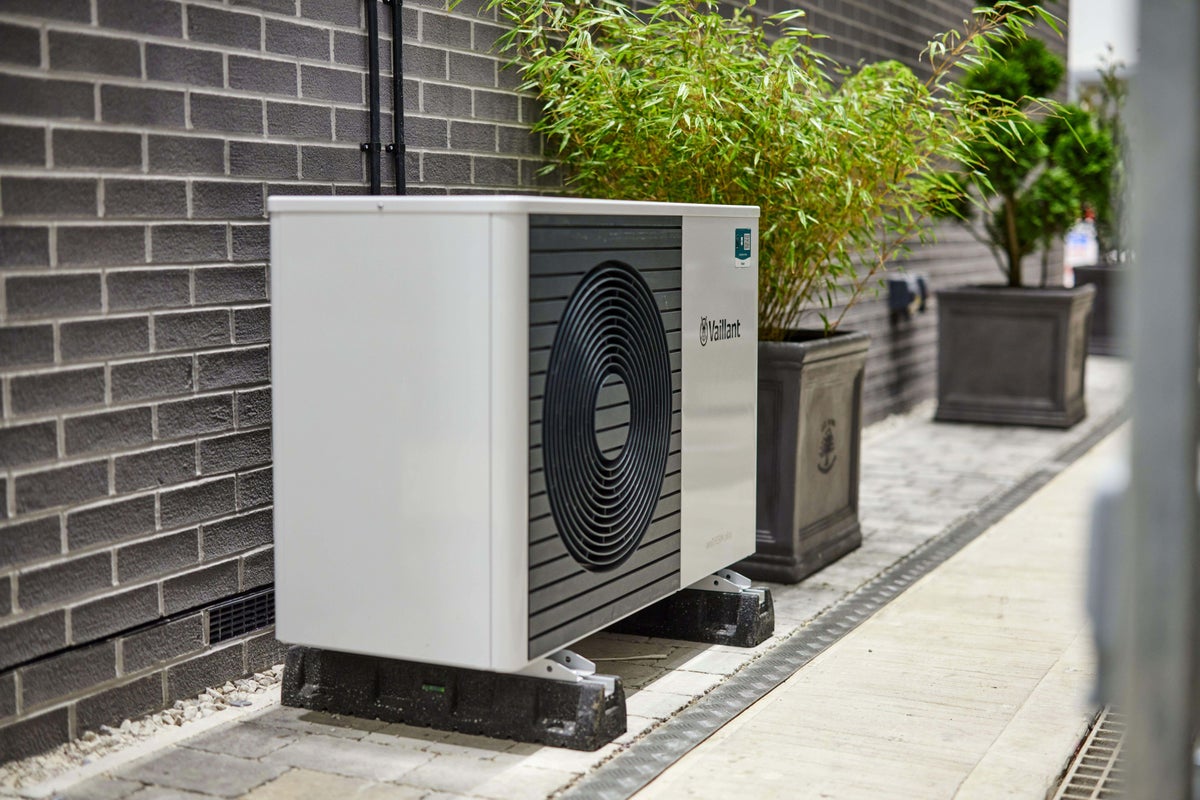Households could net thousands of pounds in savings from clean tech – report

Households with clean tech including heat pumps, solar panels and home charging for electric cars could save £37,000 over 15 years, a report suggests.
But high initial costs of adopting the green technologies are a barrier for most people, with 92% of those on lower incomes feeling they are “out of reach”, the research by energy company Ovo warns.
The firm is calling for an expansion of grants and low-cost loans to help people make the switch to green tech, particularly low income households, as well as a social tariff to support vulnerable people through the UK’s transition to clean energy.
And it joins widespread calls to reduce the cost of electricity, which is significantly more expensive than gas due in part to high policy costs added to power bills, to further incentivise the switch to electric heat pumps and cars.
The report from Ovo, which has been reviewed by academics from the universities of Exeter, Leeds and Stirling, warns delaying the shift to the clean tech that is critical for the UK’s efforts to cut climate emissions has a major financial impact for households.
It looks at six green measures: heat pumps, home insulation, solar panels, leased electric vehicles (EV), a home EV charger and a smart meter.
The average household installing all the measures would pay out, after incentives, around £15,500 to make the green switch.
But they would get the return on their investment within five years, with savings on bills from the insulation, efficient heat pumps, home-generated solar, battery storage of power and EVs which are cheaper to run than petrol equivalents totalling around £17,600 by that point, the study suggests.
And 15 years after installation, net savings could total more than £37,000.
Even if the cost of inflation and borrowing to invest in the green tech is taken into account, net savings could add up to more than £23,000 over 15 years, the report says.
However surveying for the report also found nearly three quarters of people (72%) cited upfront costs as their main reason for delaying adopting green technology, with two thirds (67%) needing to prioritise immediate financial needs over long term savings.
And 92% of households with an annual income of less than £30,000 in the survey said green technologies feel “out of reach” financially.
That is despite nearly four fifths (78%) of the more than 4,000 people polled by Strand Partners saying they wanted to decarbonise their home further.
People living in private rental homes are in a particular bind, with 81% feeling “trapped in energy inefficient homes” with landlords not incentivised to pay the upfront costs when bill savings will be realised by their tenants.
There was also a lack of knowledge about green technologies, with just 41% of households in the survey aware heat pumps could reduce their energy bills over time, and 64% of respondents were confused about which technologies would be most suitable for their home.
But alongside the financial savings clean tech can offer, there is growing evidence energy efficiency can increase property values, reduce exposure to sudden market shocks and improve daily life for example by making homes more comfortable, the report said.
David Buttress, Ovo’s chief executive, said: “We’ve stumbled into a false debate.
“Net zero is framed as expensive and unrealistic – but the data is clear: not decarbonising will cost households and the country far more.
“We talk endlessly about the cost of action and investing in net-zero – but the real crisis is the cost of inaction, and the investment that our energy system would require even without net zero upgrades.
“We need to move away from endless debate and accept that there is a clear economic reason for moving to clean energy sources.”
Dr Maximilian Gerrath, of the University of Leeds, said consumers were not just making economic decisions about green tech, “they’re navigating a maze of fear, complexity, and inertia”.
“To accelerate decarbonisation, we must make green homes not just affordable, but easy, visible, and aspirational.
“Most people don’t resist green upgrades because they dislike them – they resist because the benefits feel distant, while the costs are immediate,” he said.
Nick Davies, head of climate policy at Green Alliance environmental think tank, said: “Upgrading our homes with clean tech isn’t just good for the planet, it’s good for our bank balances in the long run too.
“This research shows just how big the green homes bonus can be for households that switch to clean tech like solar, home EV charging and heat pumps.
“We need more households to be able to access government support or finance to cover the upfront costs for these upgrades, so that more people can enjoy the cash-saving benefits of clean technology.”
A Department for Energy Security and Net Zero spokesperson said: “These findings show families can save thousands of pounds every year by upgrading their homes, protecting them from energy price spikes caused by volatile fossil fuel markets.
“We are investing £13.2 billion to upgrade up to five million homes over this parliament, while supporting industry to develop financing models that can remove the upfront cost entirely, helping more households make the switch to cleaner heating in a way that works for them.”
[title_words_as_hashtags




